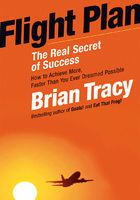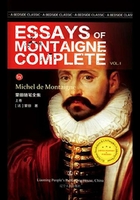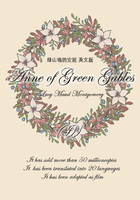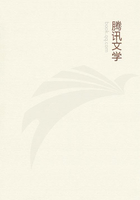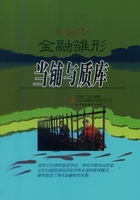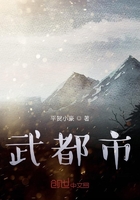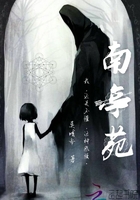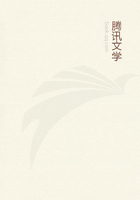Trudchen
January 14, 1909—Oregon
The creature, yet again, clung to the wall of my teacup. Unlike my older sister, I held no interest in pursuing "real-life monsters," for I no longer believed in such poppycock. I read tea leaves for the mere fun of it, to see how many coincidences emerged whenever I compared the patterns of the leaves—essentially soggy clumps of dirt by that particular stage in the tea-drinking process—to the ordinary occurrences of my life. Sometimes I would see a flower in my cup and then spy a new bloom in the front garden. Before Christmas, the shape of a jacket manifested, and Aunt Viktoria surprised me with a new coat made of wool the bright purple of spring irises to replace the ill-fitting jacket I'd owned since I was twelve. Nothing of consequence ever resulted from my attempts at divining the future, nor did I expect it to.
And yet there he sat, my fourth sighting of the curious little figure in a week. An odd greeting to find on the morning of one's fifteenth birthday.
Beyond the wooden partition that separated the kitchen from our house's main room, Aunt Viktoria scrubbed the breakfast dishes clean and sneezed from another one of her colds. I had used her brief absence from the table as an opportunity to prepare the leaves for the reading, and now I willed her to remain in the kitchen for at least another five minutes.
Careful not to block the candlelight that twitched across the tabletop, I bent my face over the rim of the bone-colored teacup and contemplated the creature-shaped cluster within. He stood in profile on the rightmost side of the cup, and he was a spindly fellow with the wings of a bat and a head like a loaf of bread. Remnants of tea trickled down to the cup's bottom from his twiggy little legs, which ended in hooves. He inhabited the right side, which I always interpreted to mean "the east" whenever I pointed the handle toward me, "the south," and he lingered one inch below the rim, which I took as a sign that he represented an event that would occur in one to two weeks. The shape of a bell hung to his left. Crisscrossing lines—train tracks, perhaps—occupied the space to the left of the bell.
A twinge of dread pinched at my stomach. Every time I viewed the wee devil in a reading, he edged farther and farther up the side of the teacup, as though he prowled closer and closer on his tea-colored hooves to the point in time when our paths would cross. If he thought I would climb aboard a train and lug myself across the world to find him ...
"Oh, don't be ridiculous," I scolded myself in a whisper, for I knew I was fretting over mere smudges in a cup.
"Are you finished yet, Trudchen?" asked Aunt Viktoria in her no-nonsense accent—part German (meaning that every phrase she uttered sounded blunt), part Oregon pioneer (meaning her voice offered no comfort for any hardship that did not involve transcontinental migration. Please note, however, that Aunt Viktoria had traveled to Oregon via train, not covered wagon).
I wiped away the leaves with my napkin. "Yes, Auntie."
Auntie clomped around the corner in her thick house shoes while drying her hands on a milk-stained apron. Her pinned-up hair, her cotton dress, her shoes—even the fine little hairs that sprouted across her upper lip—were all the same watery brown as the tea stains crumpled inside my napkin.
She reached for my plate, but I grabbed all the items that involved the reading.
"I'll get my cup and napkin, thank you," I said. "I don't want you dropping the china. Does your hip still hurt?"
I averted my eyes from hers, never liking to discuss any new discomforts.
"Trudchen?" she asked, her head cocked. "Are you well enough to help with chores today?"
"I'm fine," I said. "You need my help."
I wrapped my left fingers around the curved handle of the hickory cane Uncle William had carved for me not long before he died, two years earlier. The ball of my thumb brushed the cold metal of the letter T, for Trudchen, set into the wood below the handle. Using my free hand, I crammed the soiled napkin into my cup. I then rose to my feet, accompanied by the usual clink of my leg brace as it locked into place at my knee.
Ever since small quivers of muscle movement had returned to my right leg when I was ten years old, I had worn a heavy iron brace that buckled around my knee and upper thigh with leather straps. The brace kept the limb as stiff as a wooden peg beneath my petticoats and skirts, but it allowed me to walk short distances. The bones of that leg hadn't grown quite right, so it was two and a half inches shorter than my left leg. To compensate, I wore a special black shoe with an oversize heel that was as ugly as sin but quite useful. For longer travels, Auntie pushed me around in a wicker wheelchair.
As always, I tromped to the kitchen with that special shoe thumping against the floorboards, then dragging across the wood like the whooshing of sandpaper. The leg brace creaked; the tip of my cane rapped against the wood. No matter how hard I tried, I could never creep about the house in secret, as Od often had as a child.
Aunt Viktoria followed with my plate and the teapot. She sighed, and I sighed, and the house itself seemed to wilt along with us. The floorboards sagged beneath our feet, and the curtains filled with a weak breath of air from a draft before promptly deflating.
Ever since she'd thrown Od out, ever since I'd left school to help with the farm full-time, Auntie and I had exchanged few words. We whiled away the hours by tending to the orchards and hunching over housework, cooking, scrubbing, chopping, scouring, mending, gutting, stirring, darning, dying ...
The postmarks on my sister's correspondence from the past nineteen months ranged from Missouri to various cities throughout California. Elaborate tales of circuses, fortune-tellers, and wealthy supporters of her "supernatural studies" littered her letters, but I did not actually know what she was doing, how she managed to feed herself, or why our aunt had forced her to leave in the first place. Auntie sent her away shortly after Od started working for a lawyer's family in the town of Hillsboro, about seven miles away, and I always feared that Od had stolen something from the family to help pay for my care. I prodded Aunt Viktoria for this information dozens of times, but no one ever told me—delicate, fragile Trudchen—anything.
"Do you know what I wish I could do for my birthday?" I asked Auntie when we buttoned up our long woolen coats to embark upon the chores outdoors. I would undertake the more sedentary tasks—feeding the chickens, milking the cows—while Auntie pruned the winter-bare filbert trees.
"What do you wish?" she asked with a sniff, her nose already red from the chill emanating from beyond the door.
I drew a deep breath and tightened my grip on my cane. "I wish I could visit my sister. I'm certain she could cure my melancholy."
"You're not meant to go gallivanting about, Trudchen." Auntie swung open the door. "And there's no need for melancholy. You have a good life. Believe me, things could be far worse." She marched out to the toolshed beyond the chicken coop.
I limped after her, my right leg stiffer than ever. I had to thrust the leg forward with a great deal of force in order to make it move, which aggravated the joints in my right hip. "I would like to see my sister," I called after my aunt. "I miss her and worry about her all the time."
Auntie continued on to the little gray shed without another word. I stopped and watched her go, hope fluttering away, as it was apt to do on those freezing January mornings, without even the chatter of birdsong in the air to ease the loneliness and silence. A breeze filled my nose with the scents of chimney smoke, of last night's rain, along with whiffs of sweetness from the Pacific Coast Condensed Milk Company's big white condensary that sat beside the railroad tracks in nearby Carnation, Oregon.
The tracks that led out of town ...
After supper that evening, Aunt Viktoria presented me with a gift wrapped in burlap: a hat she'd knitted with yarn the same shade of purple as my coat.
"Thank you," I said.
"Happy birthday, Trudchen."
That was that. We never exchanged any hugs or kisses. Aunt Viktoria did not seem to think them necessary, or else she had frightened Od and me so terribly as children, we never dared to get close to her for any semblances of affection.
Auntie cleared the dishes with a cough that turned into sneezes, and once again, I took advantage of her absence by finishing my tea to embark upon another attempt at divination. I rotated the cup three times and inhaled the fragrance of the leaves deeply into my nostrils.
Show me the future, I willed to the china, holding the cup upside down, my eyes closed, my posture erect, palms pressed against the warm, circular base. If divination is real, please, I implore you, reveal what is to come.
I opened my eyes, flipped the cup upright, and leaned over the china without breathing.
The creature was back.
Oh, he did not simply reappear in a nonchalant way. He had grown taller. He'd swelled to twice his previous thickness. He'd darkened. Moreover, he now hovered a mere half inch beneath the rim of the cup, once again in the region I believed to represent the east, and beside him hung that bell again, as well as the crisscrossing tracks and, now, four letters.
PHIL
Phil, as in ... Philip?
How peculiar! I thought. The creature now has a name. A regular, human name.
Or ... perhaps, I then surmised, the figure represents a man and not a beast at all.
Phil.
And a bell.
A bell with a little line weaving through it.
A bell with, perhaps, a crack.
The Liberty Bell, maybe.
Phil.
Philadelphia?
"Whatever is the matter with your teacup, Tru?" asked Auntie, catching me in the act of frowning down at the leaves.
I jerked my chin upward. "Nothing. It's just in need of some washing."
Once again, I crammed my napkin down inside the cup to hide my little game.
And again, I scolded myself for getting spooked and swayed by petty clusters of leaves.
At nine o'clock, I retired to my bedroom, more fatigued than usual. My right hip burned as though on fire, and both legs lagged, even my left one. Everything popped and cracked and clicked when I walked.
After changing into my nightgown and unfastening the leather straps from my right leg, I used my hands to hoist the limb out of the iron brace, dropped it onto the mattress, and scooted backward on my bed until my spine met the wall. My long white nightgown hid the leg's scrawniness, the shortness, the ghostly paleness, but I didn't care all that much how it looked when I was alone. What I fretted about was the way my leg stopped me from seeing any true future for myself. Auntie had hinted more than once it would be rather difficult, if not impossible, for me to find a husband. I wasn't sure I believed her, for boys at school had always been kind to me, and just the year before I'd received a sweet valentine from a fellow named Peter, but that's what she said all the same. I could sew and embroider but had no means of traveling to work, even if I could take time off from helping Auntie with the farm.
Fine examples of my embroidery, in fact, surrounded my head at that very moment. Hummingbirds, blue jays, robins, sparrows, nuthatches, eagles, and cranes—all stitched with bright threads on square-shaped cloths. I couldn't afford to frame them, so I pinned the swatches to the bare boards of my walls with great care. No signs of my sister remained in the small quarters, however, aside from Mama's gold and copper hand mirror, propped on the windowsill, the reflective glass still pointed at the world beyond. On the back of the mirror was etched a circle divided into four parts by an intricately knotted rope. A "protective symbol," according to my sister.
Sometimes, when we'd slept side by side as children, Od would nudge me in the ribs and whisper, "Did you see that, Tru?"
"What?" I'd ask with a lift of my head.
"The mirror just flashed again—like a burst of lightning. That's what it always looks like when I catch it working."
I never personally saw the mirror casting even the smallest wink of light. I never witnessed any of it—the castle, the tarot cards, a mysterious old case of monster-hunting tools Od claimed our mother once owned. On my eleventh birthday, I experienced a vivid dream about a woman screaming outside our front door, and Od explained afterward it had been the ghost called La Llorona, a tragic, vengeful spirit who shared the same first name as our mother: Maria. Od had feared La Llorona ever since our early-childhood years in California.
But, as I said, it was only a dream. Everything about my life with Od had dripped with fantasy, reveries, whimsy, and bunkum.
My head ached. Tired of all those superstitions—tired of paying heed to legends and divination simply because they made me feel close to my sister—I lifted my leg back into the brace, fastened the straps, and grabbed my cane and that silly hand mirror. I then walked across the room to my pine wardrobe and buried the mirror deep beneath my summer dresses.
In the middle of the night, something rapped against my window.
Mama's mirror remained tucked away in the wardrobe. For the first time in my fifteen years of life, I'd slept without that tarnished old piece of glass pointing toward the orchard, and now SOMETHING WAS RAPPING AGAINST MY WINDOW!
With my teeth clenched, I forced my eyes to my right with an agonizing strain of ocular muscles. I peered through the darkness at the drawn curtains that hung no more than two feet from my bed. The rapping, initially a tap, soon loudened to a full-fledged knock that vibrated across my skull and the walls of my bedroom.
BANG! BANG! BANG! BANG!
Chills coated my arms and my neck, and my hands and feet went numb. Why, oh, why didn't you just leave that mirror in the window? I asked myself. Why on earth did you believe that being torn to shreds by a half-dog, half-human monstrosity—or whatever horrific wretch is pounding on the glass out there ... oh, God, listen to it pound! Why did you think a painful death involving sharp teeth and ripped flesh would be better than boredom? Why didn't you listen to your sister? She's been warning you about this very moment ever since you could first understand words! It's going to hurt so terribly to die this way!
"Tru?" I heard someone ask—a muffled sound.
My eyes stretched wider.
"Tru?" called the voice again, and my mind scrambled to interpret what it had heard, to decipher the voice—a female voice a tad higher than Aunt Viktoria's.
"Are you in there?" she asked again.
I gasped and sat upright.
"Tru? Are you there?"
I sprang off the side of the bed, but my right leg, unsupported by the brace, gave way, which led to my falling and crashing onto my left knee in the dark. Ignoring the pain and the bruising, I scrambled up to a kneeling position and lifted the bottom of my curtain, discovering my sister's face glowing in the light of a lantern, directly outside my window. She wore a black hat with little red roses, and the curls that snuck out from beneath the brim looked a tad darker than when she was younger; her face seemed a mite fuller and older. Without a doubt, though, it was my Odette, peering at me with warm brown eyes.
I pressed my right hand against the glass. "Od?"
She pushed a glove-covered palm against mine. "Please, open up."
I raised the sash as far as I could from my kneeling position, my hands slipping, shaking, unable to function quite right.
"What in heaven's name are you doing here?" I asked.
She lifted the window the rest of the way open and spread the curtains apart. "Is Aunt Vik asleep?"
"Yes."
"May I come in?"
"Why didn't you knock on the front door?"
"I don't want her to know I'm here just yet." She hoisted a tan bag—an iron-bottom Gladstone, the type that folded into two compartments—through the open window and plopped it down with a thud on the floor below the sill. She turned away for a moment, then somehow climbed into the room with a mahogany-colored case gripped in her right hand and the lantern dangling from the crook of her left fingers. She wore a plum-colored coat with a high collar and flared cuffs that reminded me of Aunt Viktoria's old dresses from the 1880s. She smelled of ashes and dust. I almost believed she'd just appeared outside my window in a puff of smoke.
I remained on the floor, my mouth agape.
Od shut the window and the curtains and plunked herself down in front of me, the lantern and luggage parked by her sides. "My heavens." She grabbed hold of my shoulders. "Look how much you've grown, Tru. Just look at you! Happy birthday."
"You ... y-y-you came," I said, and the room spun and tilted, the air too thin to breathe. All I could think of was the vision of an Odette-style monster in my teacup, and the railroad tracks, and how this all must be a dream.
Od pulled me to her and squeezed her arms around me, her clasp real and solid and not like a hallucination at all. The felt of her hat brushed my left cheek; her warmth washed through me and stopped the room from tilting. We cried quiet tears against each other, careful not to wake Aunt Viktoria, who snored on the other side of the wall. In an instant, that embrace transported us back into our former selves, tucked together in our attic bed with nothing between us—not time, nor heartbreak, nor secrets.
"Why did you finally come back?" I asked in a whisper.
"I wanted to surprise you for your birthday."
"Where have you been?"
"Didn't you receive my letters?"
I sniffed. "Where have you really been?"
She lifted her head away from mine. "I've also returned because of matters most urgent."
"What matters?"
"Tell me honestly, and this is vital, Tru"—her grip on my arms strengthened—"has anything troubled you now that you've just turned fifteen? Has anything peculiar occurred?"
My thoughts turned again to the beast with bat wings in my teacup. A shiver trembled through me, but I clamped my lips shut and refrained from discussing anything supernatural with my sister.
"Tru?"
"No." I wiped my eyes. "The only thing that's troubled me is boredom and tiredness. And not being able to see you, of course. I've missed you terribly. It's hurt so much."
"I know," she said, her voice a mere whisper. She held my hands, and her eyes glistened in the lamplight. "Aunt Vik will have a conniption when she sees me here, but there's something I absolutely must tell you."
"What?"
She swallowed. "I know I've buried you in all sorts of wild tales throughout the years, but there's truth to the stories about our mother, Tru. You must believe me—she was special. She wasn't an ordinary mother, and I've learned she didn't leave Oregon just to save our uncle Magnus from dying of asthma, as Aunt Vik's claimed all these years."
The excitement in Od's voice warned she was about to dump another one of her "wild tales" into my lap. A sharp stab of disappointment punctured my elation.
"What did ..." I cleared my throat and squirmed. "What did you learn?"
Od leaned closer. "As I've already told you hundreds of times before, it runs in our family, this ability to protect others. Before she came to America, our mother's mother was a fierce Protector of villages in the Black Forest of Germany, and Mama inherited that talent from her. But the gifted people in our bloodline don't just hunt down dark creatures." Od's gloved fingers grew warmer against my hands. "They attract them. The creatures come to them."
My shoulders sank. "Od, please. I don't want any tales of monsters right now ..."
"Listen to me." She cast a quick glance toward the bedroom door. "It started sometime when Mother was fifteen, after her parents both died. Aunt Vik, Uncle Magnus, and Mama lived on their parents' farm in the hills west of Portland, and things—terrifying things beyond normal animal and human categorization—fought to get into the house late at night, despite all the charms and bells they hung from the eaves, just like the amulets hanging outside your very own window. They were forced to kill the creatures or to send them away through special mirrors." Od turned toward the window and lifted the bottom edge of the curtain. "Oh, Lord!" She whipped her head my way and glowered. "Where's the hand mirror I left with you?"
"Od, please, stop—"
"Where is it? Why isn't it protecting you anymore?"
"I've hidden it."
She jumped to her feet. "Where?"
"It doesn't matter."
"Yes, it does." She dragged me up to a standing position. "Fetch it, please! Hurry! This isn't a joke, Tru."
"I can't hurry anywhere."
"You must. You're fifteen now. The same thing that happened to our mother could happen to you."
"Od, stop!" I yanked my arms out of her grip, but without my brace to support me, I fell backward to the floor and landed on my rump with a jolt of my neck.
"Tru! Are you all right?" Od reached down to help me, but I shoved her hand away.
"I'm not hurrying anywhere," I said, "and I'm certainly not going to chase after any monsters, real or otherwise. If you think my leg miraculously healed while you were gone, then you're even more childish than you sound."
Od froze at those words, her arm still outstretched, her eyes round with shock.
I lowered my face and heard how callous I had sounded—even though it was true: her refusal to face reality seemed worse than ever.
"I'm sorry," I said. "I shouldn't have said that."
Aunt Viktoria's mattress squeaked in the room next door. Od and I whipped our heads in that direction.
A moment later, another snore rumbled from beyond the wall, behind my embroidery collage of birds frozen mid-flight. In unison, my sister and I released held breaths.
Od kneeled in front of me and removed her gloves. "I didn't mean to make you fall. I'm so sorry, Tru. Are you hurt?"
"Just this morning," I said in a whisper, "I told Auntie that more than anything in the world, I wished to be with you."
"You see, then?" She grabbed my hands. "Birthday wishes do come true."
"Ever since you left, I've longed to leave this farm and find you, to live with you, but I've always known I would have to be reasonable about it. I want a real life that would make me happy, not a pretend one."
Od pursed her eyebrows. "This isn't pretend, Tru. I've saved up money. I can buy us train tickets, food, and shelter. I want to take you far away from this place and seek our destiny."
"Where do you expect us to go?"
"Anywhere you wish."
"I would love that—truly I would. But I'm still growing a bit and need to make sure I'm in a leg brace the proper size. I need my wheelchair. I require care and money."
"I'll take care of you."
"It's one thing to dream about seeing the world, but, honestly, Od"—I shook my head—"it wouldn't be practical."
Od withdrew her hands from mine. "We would hire ourselves out as specialists. We'd earn money."
I shrank back. "What type of specialists?"
"Let's get you off this floor"—she wrapped an arm around my back—"and onto the bed."
She helped me up and supported my full weight against her. Without the brace and my raised shoe, I had to hop on my left leg to avoid falling, but she clutched me through every hop.
I sank down on the edge of the bed. Od kept her arms around me until she was certain I was safely situated.
"What did you mean by specialists?" I asked again.
My sister stood upright and wriggled her shoulders out of the plum-colored coat. Her attention strayed again to the window. "I honestly would feel a hundred times better if I could put that mirror back on the sill. Something rustled through the bushes when I was out there, and it sounded hungry."
"How did you get here?" I asked. "Is someone with you?"
"No, I took the last electric streetcar to Carnation and waited at the Colonial Hotel until nightfall." She draped her coat across the foot of the bed and then fussed with a little pearl that adorned her black hat. "Do you remember that porter at the hotel—the one who grew up believing in a horrifying creature called Rawhead and Bloody Bones?"
"Od, I don't care about creatures right now ..."
"He still works there. The porter, that is, not the creature. He arranged for me to eat a free supper."
From the depths of the black felt of her chapeau, Od withdrew a hatpin ten inches in length, topped by that innocent little pearl. I shuddered, for it looked as if she were wielding a small sword with a lethally sharp tip. I'd heard a story of a woman who jabbed at a gentleman caller's chest with a hatpin as a joke but punctured his heart by mistake. The man died!
"Do you mean monster-hunters, Od?" I asked, gripping the edge of the mattress. "Is that the type of specialists you're talking about?"
Something fell against the wall outside, and we both gasped and flinched. Od raised the hatpin in her fist like a dagger.
"Just go get the mirror," I said, a quaver in my voice. "It's tucked in the bottom drawer of the wardrobe."
Od tossed the pin onto my bedside table and bolted to the wardrobe. I eyed the window, my heart pounding, but I knew in my gut that the wind, nothing worse, had tipped over a rake or a shovel out there. The bells and charms that hung from our eaves tinkled in a breeze.
Beneath the window sat Od's tan traveling bag and that mahogany-colored case she'd carried inside. On the latter, next to the handle, I spotted a word of some sort, engraved on an oval plate of silver. I bent forward at my waist and read the engraving.
MarViLUs
My lips parted with a sense of wonder.
MarViLUs.
How familiar that strange spelling of the word seemed. I recalled a long-ago moment, bathed in the fuzzy haze of my earliest memories, in which Od had lifted the dust ruffle of a bed the size of a pirate ship and showed me those silver letters on that very same case.
Marvelous, she had said. It says marvelous.
"How long has the mirror been missing from the window?" asked Od in a voice that startled me enough to forget about the case. She parted the curtains and arranged the mirror just so. The reflective glass again faced the craggy silhouettes of the filbert trees outside.
"Where have I seen that leather case before?" I asked.
Od peeked at me over her shoulder. "Do you mean Mother's case?"
"Is this the case?" I scooted myself sideways on the bed to better see it. "The famous case of tools you always told me about?"
Od lifted the case as though it weighed nothing at all and perched herself beside me on the bed. "It most certainly is."
I smelled the case's antiquity in the dust and the leather and realized what an old relic of the past it seemed. Our entire childhood was rapidly turning into a precious antique.
"Od?" I asked, my heart heavy. "Is our mother ... is she dead?"
"Thankfully, no."
"Have you seen her?"
"Yes."
I sat up straight. "Where? When?"
"Do you know what this means?" Od ran her right index finger across the silver letters.
"Od, tell me the truth," I said, sliding closer to her on my backside. "Where is she?"
"Look at the letters." She pointed to the first three of the eight characters. "'Mar ...'" Her finger moved to the next two. "'Vi ...,'" she said, and she pronounced the syllable as though she were about to add a k at the end. "And Us." Her eyes met mine and urged me to listen—to truly listen.
I dropped my gaze to the letters.
"Mar," she said again, enunciating each letter with great care. "Vi. Us."
I gasped, suddenly understanding. "Is it 'Mar' for Maria and 'Vi' for Viktoria? And ... the 'Us' is for ..." I squinted at the letters. "Is it for the last two letters of our uncle Magnus's name?"
"Clever girl." Od beamed with pride, the way she had whenever she'd taught me how to complete some complex task, such as buckling shoes or sounding out words in Uncle William's monthly bulletins from the Oregon Agricultural Experiment Station.
"And what is that bizarre, gargantuan L doing in the middle of the word?" I jabbed at that awkward-looking letter, which reminded me of a six-foot-tall boy named Ernest Cole, who stood at the center of a photograph taken of all of us school-children years ago.
"It's for their surname, Lowenherz," said Od. "In German, the name means 'lionheart.'"
"I see a lock," I said, picking at the silver metal, "but is there a key?"
"It doesn't require a key."
I spotted a brass key dangling from a gold chain around her neck. "Then what is that key doing there"—I flicked the brass with the back of a finger—"hanging around your neck?"
Od squeezed her left hand around the key, swallowing up the metal in her fist. "It's for a little box that's sitting in my Gladstone bag."
"What's in the box?"
"Heavens!" She rolled her eyes. "You do still bubble over with questions, don't you?"
"What is in the box, Od?"
She took a deep breath. "Just a story I wrote. I'll show you it later. That's not what's important at the moment. Right now I need you to agree to come away with me."
I cast her a sidelong glance. "To hunt down monsters, you mean?"
"They'll be coming for you, and it's far better we find them first instead of the other way around. We must also continue cataloging otherworldly beasts. Do you remember all those stories we collected from neighbors and condensary workers about where they were born and what types of monsters they believed in?"
"Of course I remember."
"Remember their eye-widening tales of flying serpents, owl men, dog men, thunderbirds, water dragons ... Oh!" She sat up straight and palmed her cheeks. "There was even the Kalapuya legend of a water monster named Amhuluk who enjoyed drowning children five miles away from this very house."
I nodded. Like an expert folklorist, Od had, indeed, catalogued our findings in a black leather journal, grouping the supernatural creatures by regions, defining traits, and their proclivity for eating—or at least murdering—wicked children. I, being a budding naturalist, had sat beside her during these interviews and drawn crude sketches of whatever half-human animal or fantastical winged beast our subjects described. Od had taken the book along with her when she left home.
The exhilaration in her eyes now made me fear that she viewed our old catalog not as a lark but as a legitimate guidebook that would tell her where to travel with a rifle, a sword, or whichever lethal weapon she happened to acquire, and she would one day kill a person whom she mistook for a beast—just as Don Quixote attacked windmills he mistook for giants.
If my sister, a girl one month shy of her nineteenth birthday—technically, a woman—still believed in monsters and mystical leather cases, then one of two scenarios was now true.
1. Od and I genuinely hailed from a family with the ability to fight evil.
2. Od's stories were the mutterings of a broken girl who'd lost her lovely mind.
I feared the latter possibility far more than the first.
"Tru." She gripped my right shoulder. "Future generations desperately require our help. They'll need to know how to eradicate these creatures. We've got to head out and actually experience battling the darkness so we can pass on this knowledge and save them."
My throat thickened. For a moment, I couldn't swallow or breathe.
Od took hold of my left hand. "Let me tell you the history of this leather case."
I drew my hand away. "I told you, I don't want any more stories."
"Not a story—a history," she said. "You see, whatever the Lowenherzes required to fend off trouble could be found within this receptacle. Uncle Magnus enchanted the case, Aunt Vik created the charms to protect it, and Mama used it to fight off their unsettling attackers. That's how they worked together after their parents died tragically and they lived all alone in their house in the forested hills." Od ran her fingers over the leather with a soft and fluttery sound. "When battling monstrous creatures became too much, too tiring, and Uncle Magnus struggled with asthma and almost died, Mama took him down to San Diego, where the air was better for breathing and fewer demons dwelled. Aunt Vik stayed behind, for she had fallen in love with Uncle William. Plus, she possessed no glamour that beckoned dark creatures to her. That's one of the reasons Mama left us here: we'd be safe from monsters, guarded by Aunt Viktoria's amulets, and far from the person who attracts the darkness ... until we would grow old enough to attract the darkness ourselves."
"If all of this is true," I said with a tilt of my head, my eyes narrowed, "then why didn't monsters approach you when you turned fifteen?"
Od averted her eyes from mine. "Oh, I've battled many a dark demon, Tru."
Again, I couldn't swallow. My throat squeezed shut, my nostrils swelled, and tears blurred my vision.
"You must be awfully tired from your journey," I said, a quaver cutting through my voice. "I'm sure you traveled a great distance ..."
She frowned. "You don't believe me."
I wiped my eyes. "Please, tell me honestly ... are you well, Od?"
She wrapped her hands around the sides of the case. "I am now. I will be if you leave this house with me tomorrow morning. We mustn't waste time, Tru ..."
"Were you lonely when you were gone?"
She mustered a weak smile. "Oh, there were dozens of other troublemakers like me out in the world. We all helped each other get through any homesickness and tears."
"Where were you?"
She shook her head. "I already told you, in my letters."
"Od ..." I placed my hand in the space between the two of us on my quilted bedspread. "Will you please believe that I'm no longer a child and that I can face reality, no matter how harsh that reality might be?"
She lowered her face and breathed through her nose. Her spine shortened. The brim of her hat sank down her forehead. She no longer seemed the confident girl who'd just launched herself through my window.
"Was I even born in a castle?" I asked.
She smiled a genuine smile then. In the time it took me to blink, however, her lips sank, and she picked at the case's bottom right corner.
"Was I, Od? Did our father come galloping in from the coast and ride up to towers made of stone?"
"What do you think?"
"I think ..." I cleared my throat. "I think that I was probably born in a regular house or a hospital, and there was nothing magical in the slightest about my entrance into the world."
Od turned her face my way, her left eyebrow cocked. "Ah," she said, "now that's where you're wrong ..."

